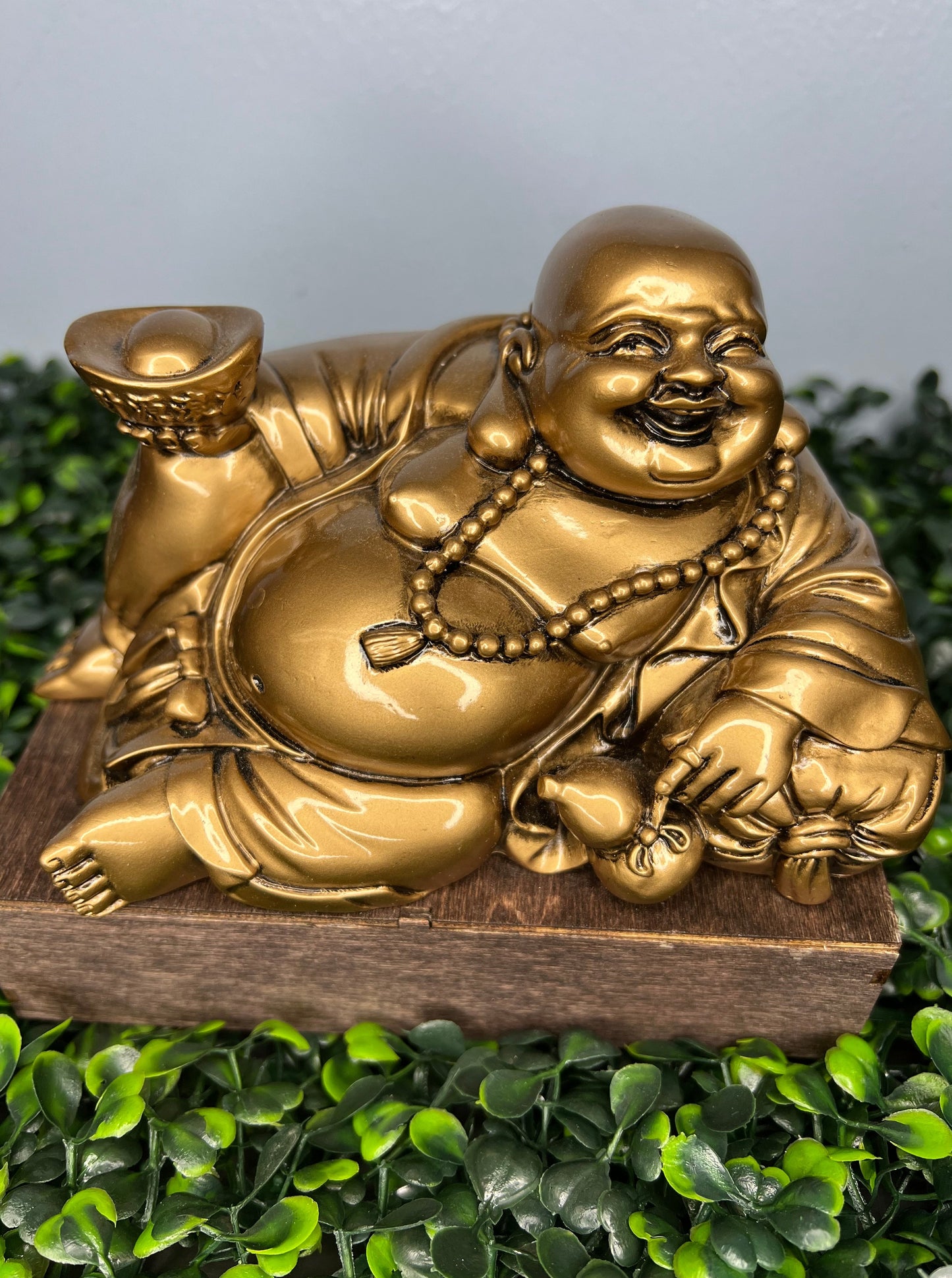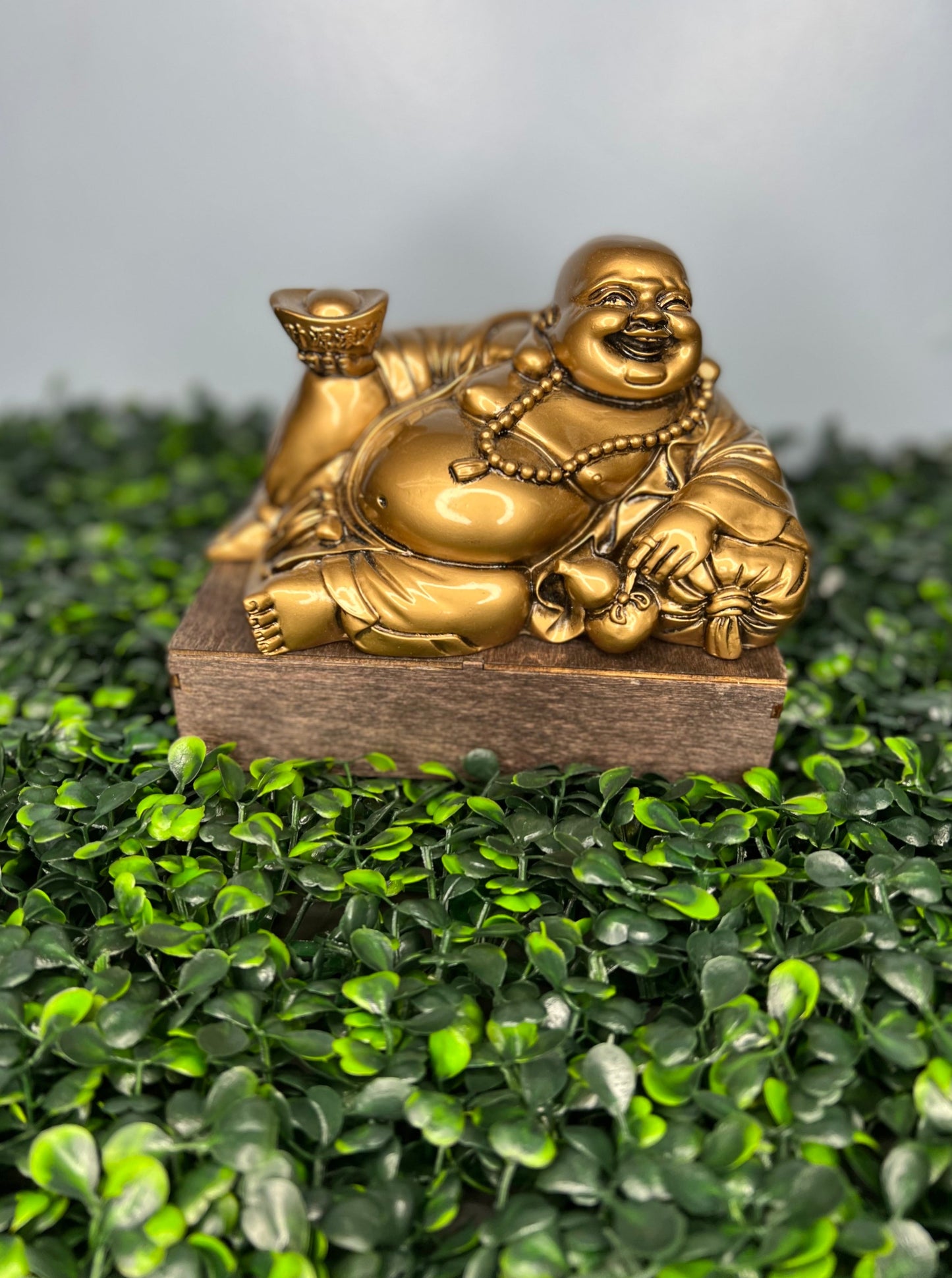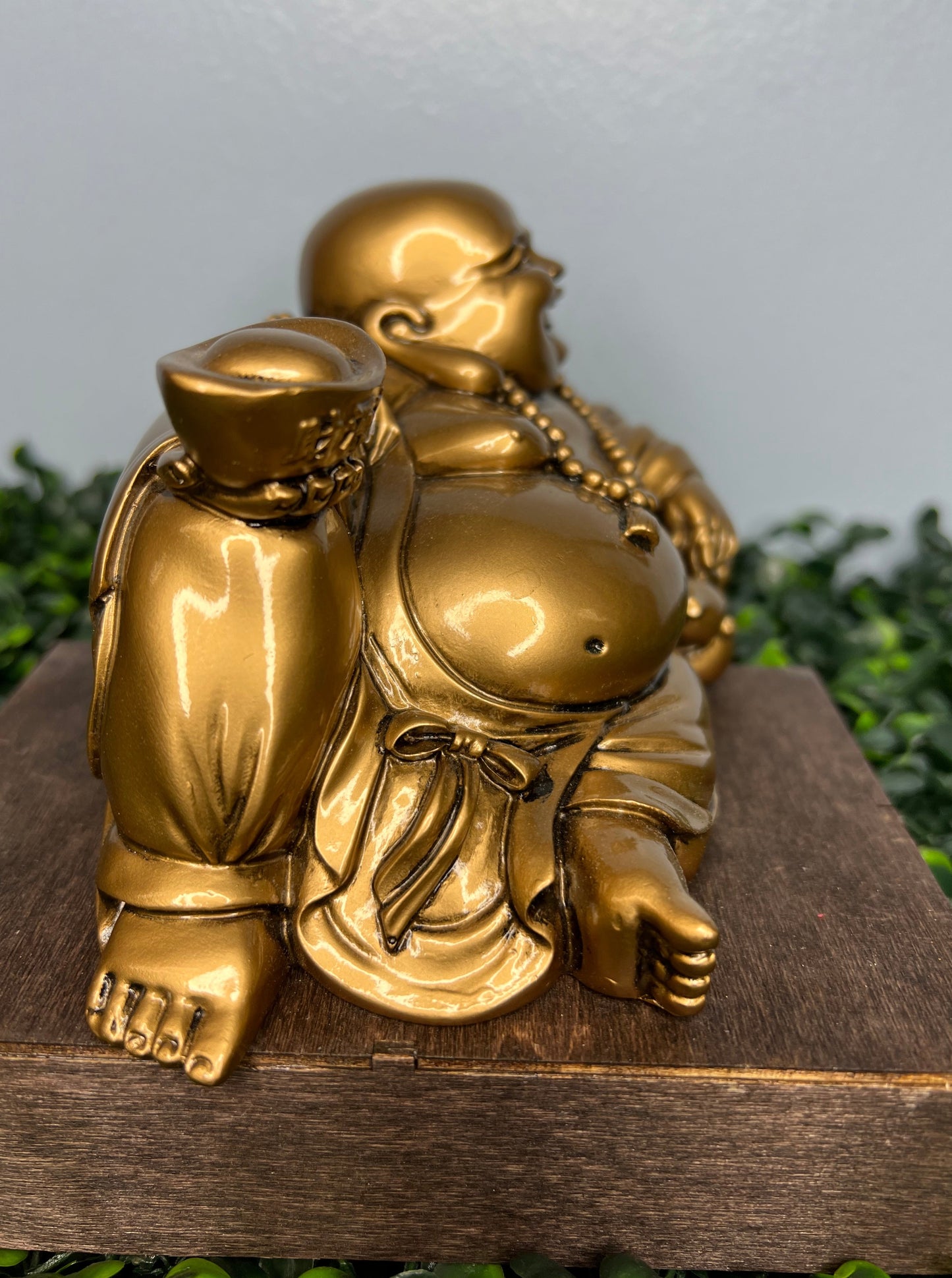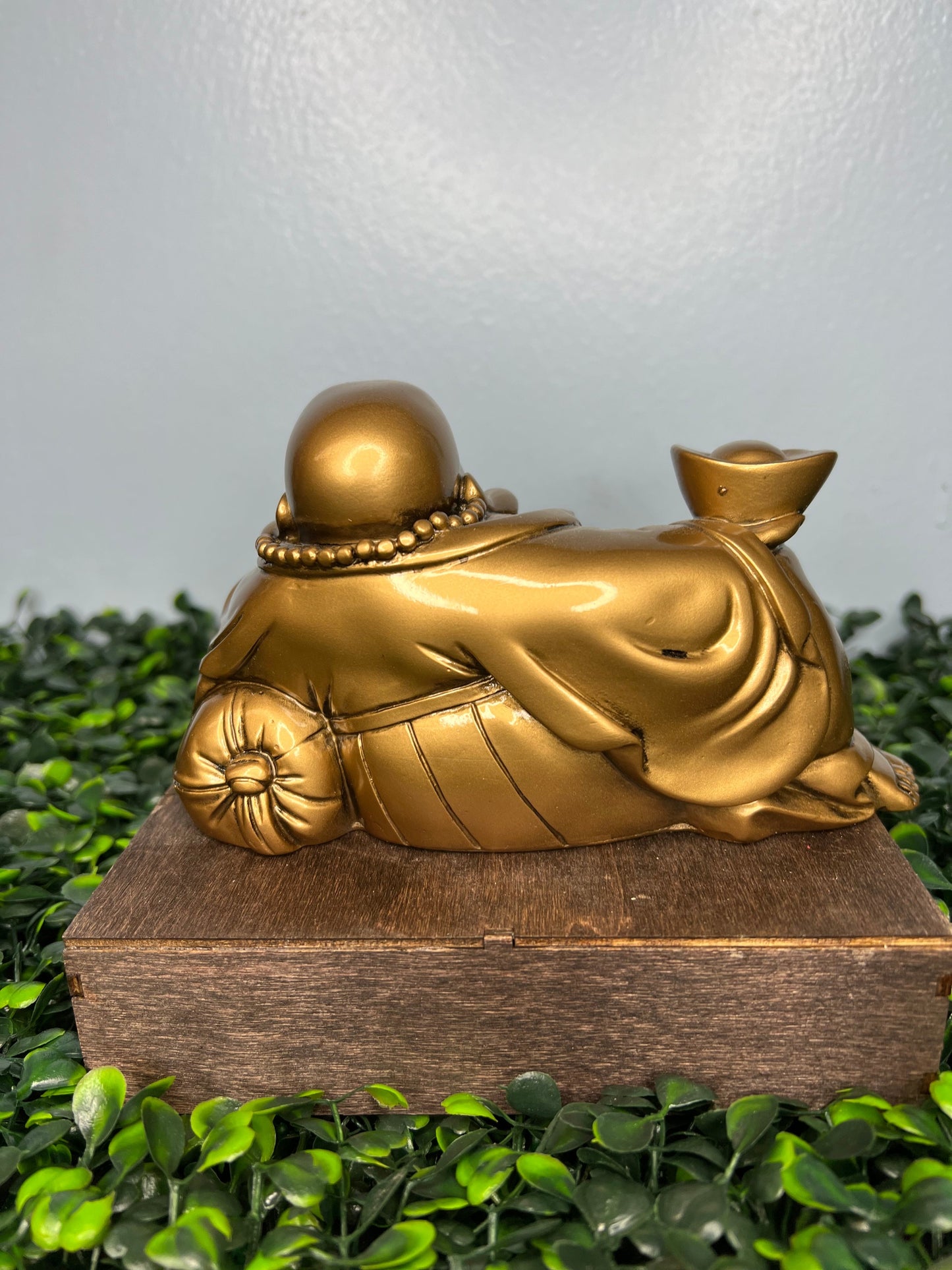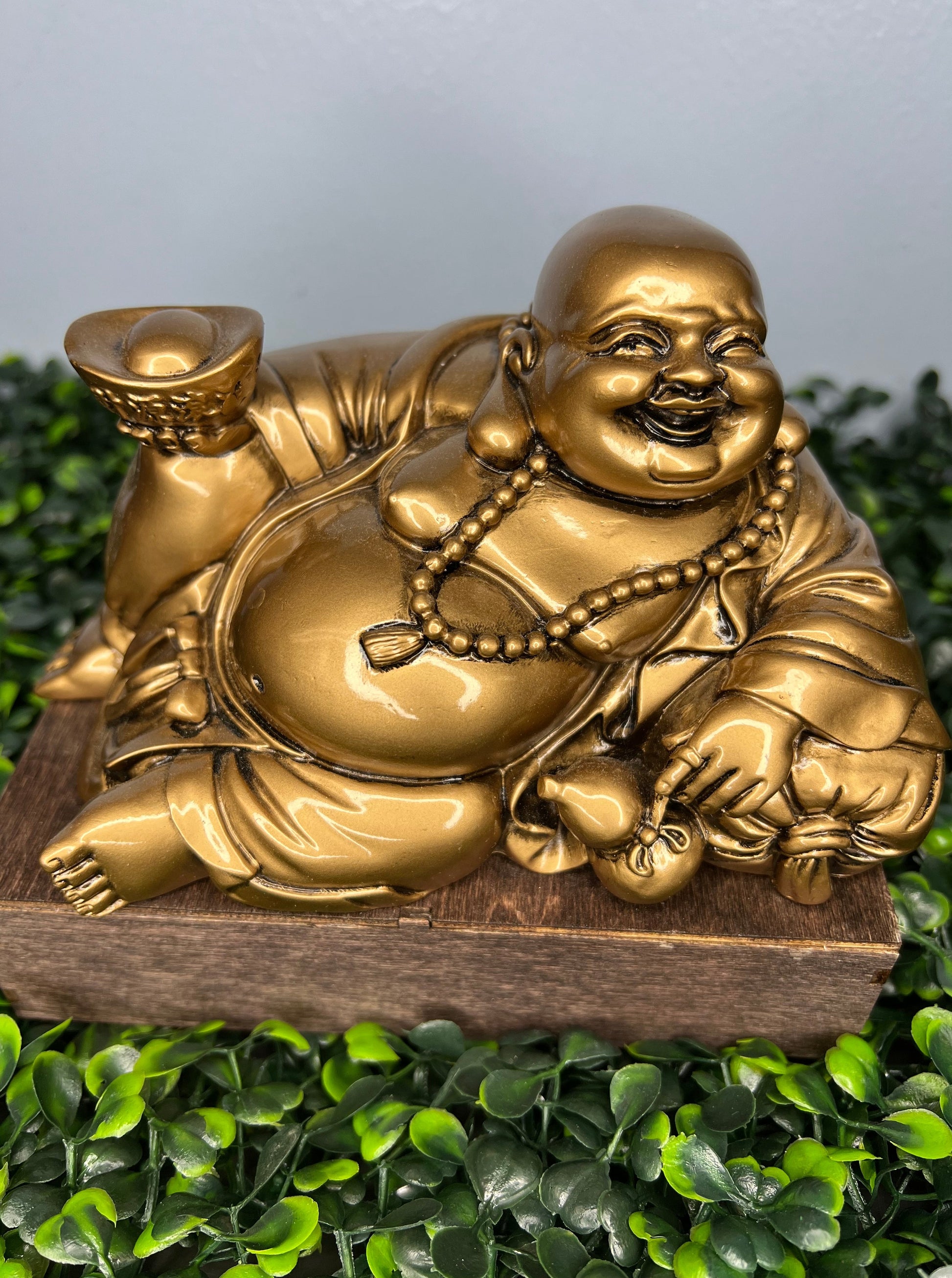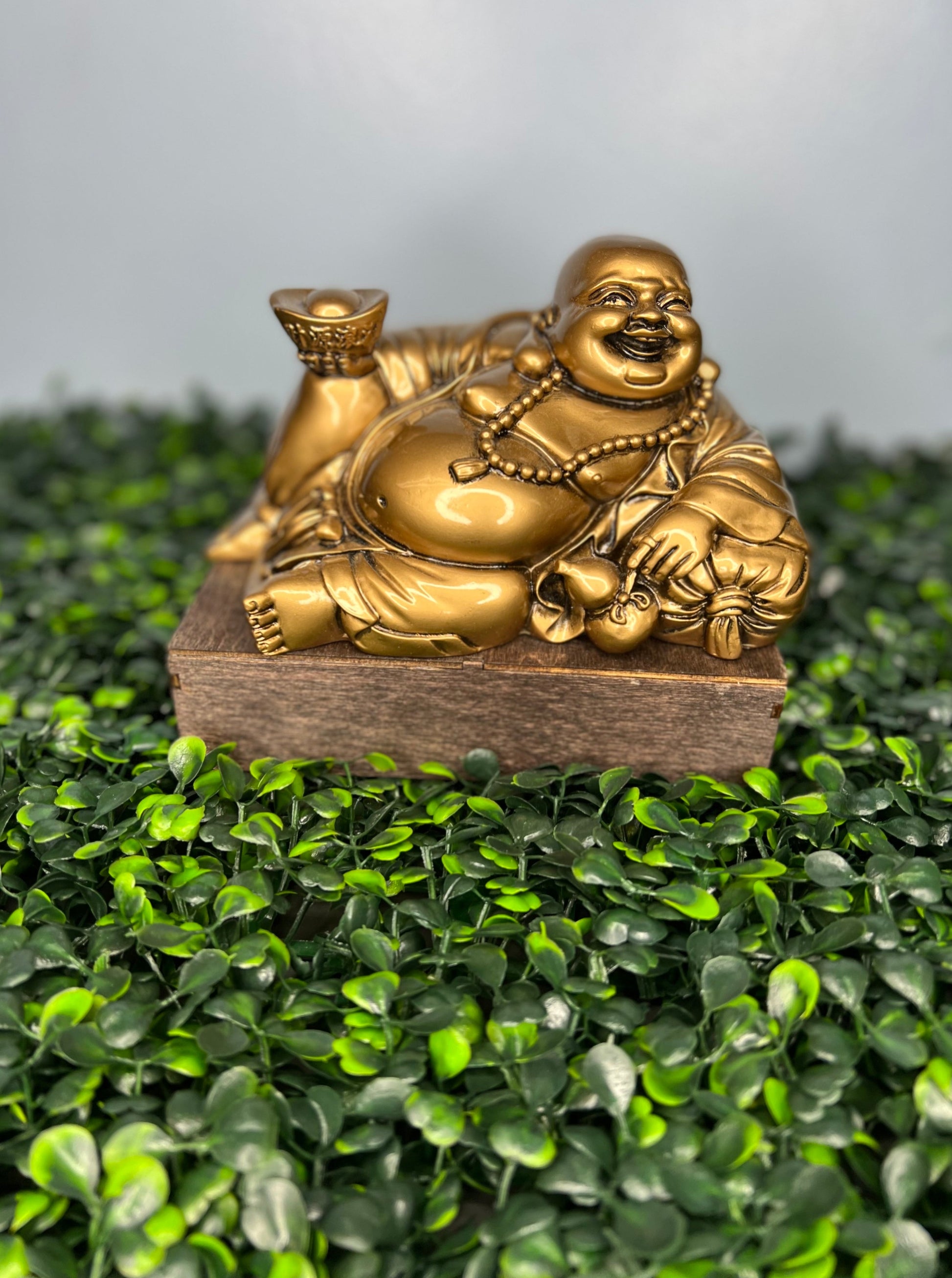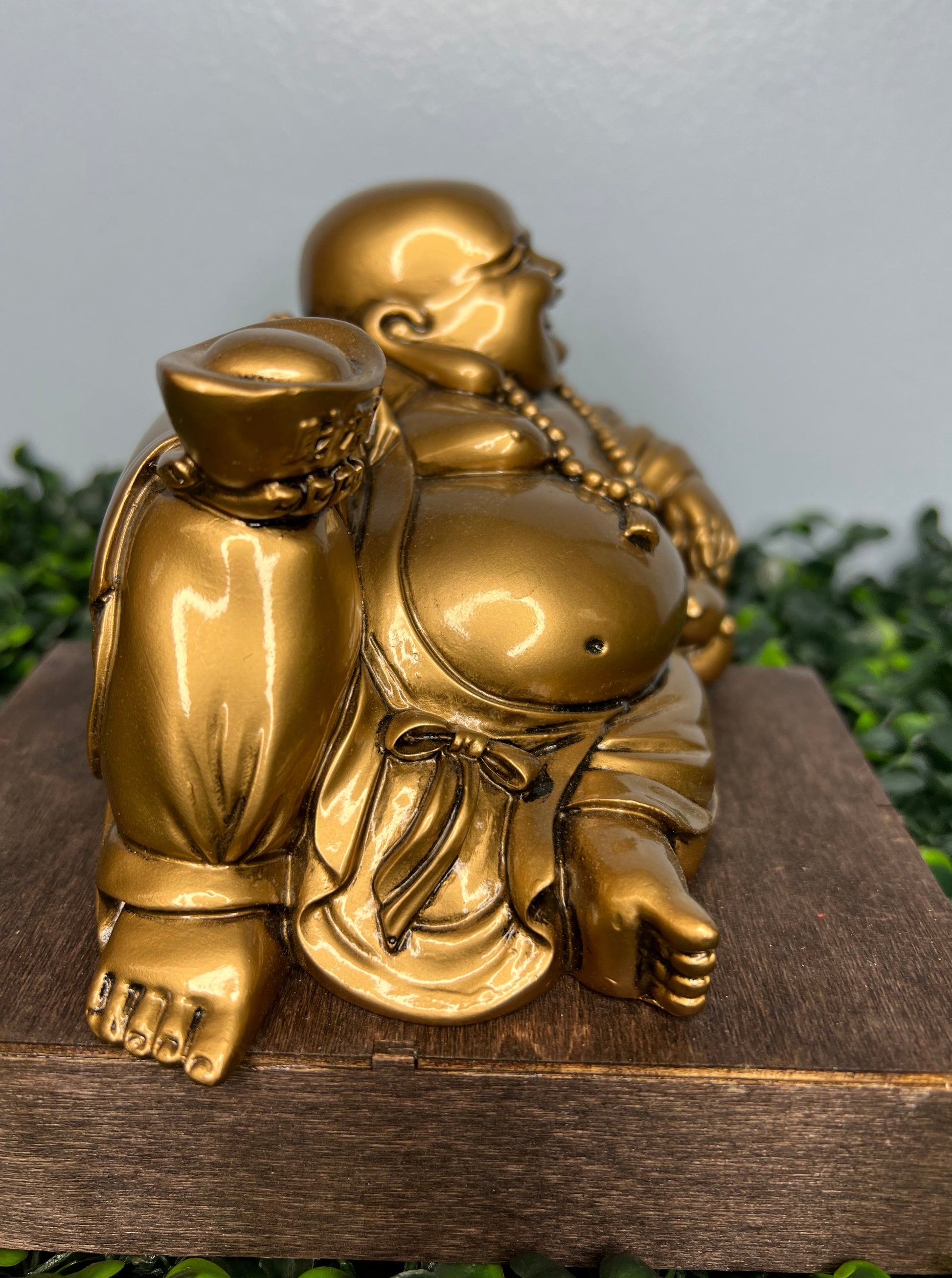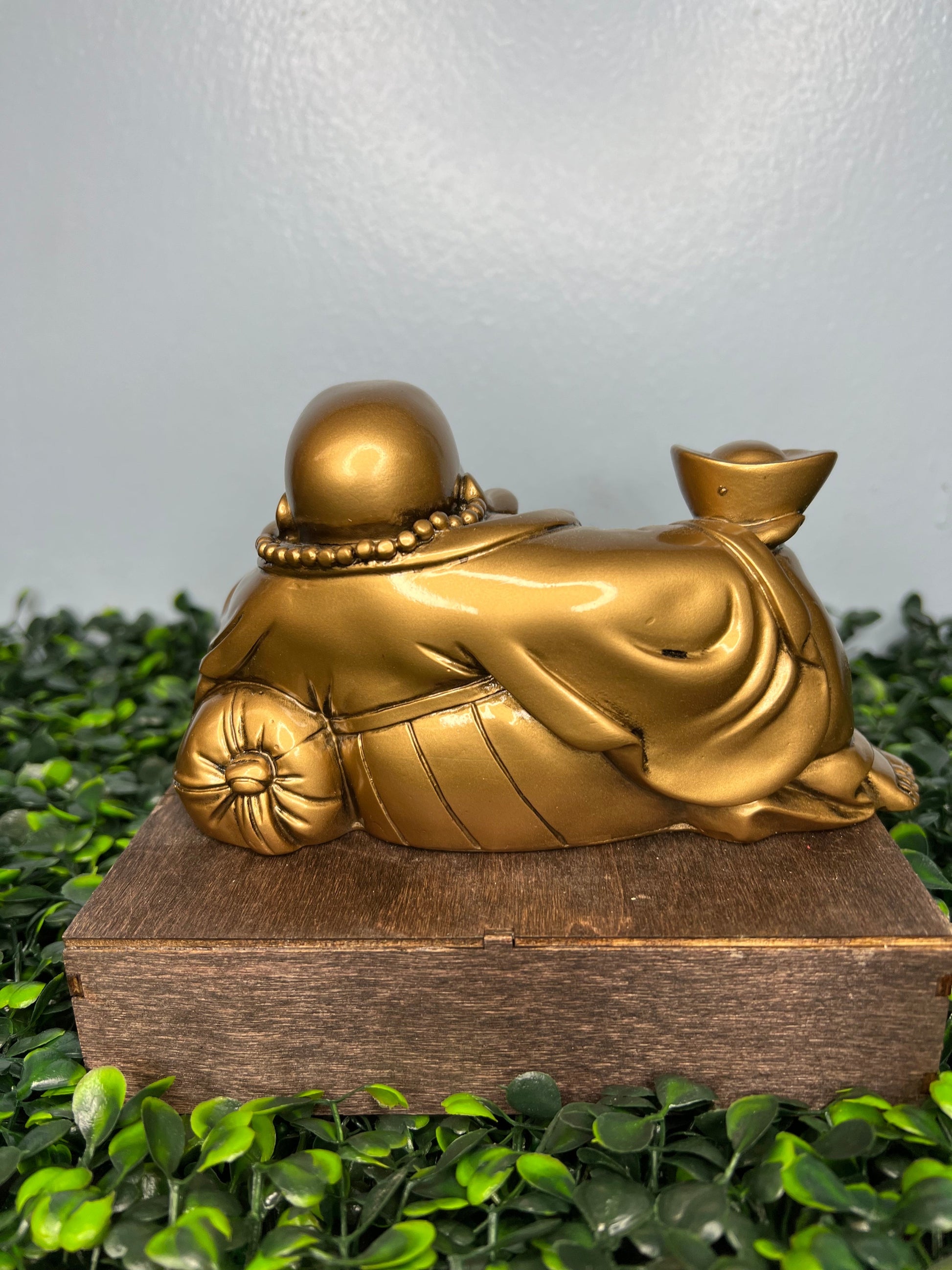Rush of Ase
Statues | Laughing Buddha Statue
Couldn't load pickup availability
Laughing Buddha Statue
Approximately: 26.5 oz; 6"L x 3.5" H x 3.25" W
Bronze Colored
Made out of polyresin
Buddha is known for his benevolent character. Known to bring happiness, prosperity and good fortune. This Laughing laying down Buddha is holding one big ingot in his hand, this lying down Buddha statue represents relaxation, joy and wealth.
----
Originally named Hotei (in Japan) or Budai or Pu-Tai (in China) the Laughing Buddha is known as the Loving or Friendly One. His figure is based on an eccentric Chinese monk who lived over a thousand years ago and who has become a significant and popular symbol in Buddhist and Shinto culture.
Pu-Tai literally translates to “Cloth Sack,” which is reference to the knapsack that he was carrying with him. Legends has it that Pu-Tai was a very kind, saintly and generous Zen master. Pu-tai’s mission was to spread happiness and joy wherever he went. People used to crowd around him and he is often depicted with happy children. The monk was famous for handing out sweets and small toys he took from his cloth bag, after which he would put the bag down, stare up at the sky and start to laugh madly. His laughter proved to be very contagious indeed and before long all who had gathered around him would start to laugh as well. Having accomplished his mission, Pu-tai would then move on to the next town.
Pu-Tai explained that handing out sweets was symbolic for the notion that the more you give, the more you receive. His bag represented the problems all people encounter in life. Instead of clinging to them you should distance yourself from a problem by putting it down (just like he would put the bag down) and laugh at it, because whether you laugh or cry the problem is not going to change. The magic lies in the laughter and more precisely the power of laughter. Pu-Tai believed that the power of laughing made problems smaller and easier to handle.
The Laughing Buddha is cherished all over the world. He is found in homes, restaurants and places of business.
A Chinese custom is rubbing the belly of a laughing buddha statue to bring you good luck, prosperity and happiness.
